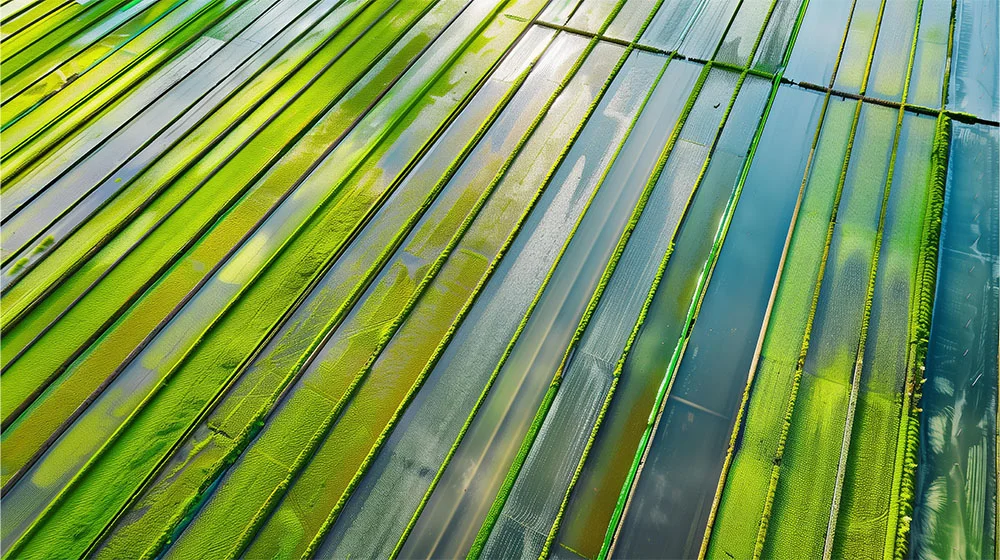Beyond the Crop: Why Algae Outperforms Traditional Biofuels in Rural Industry
- Home
- Beyond the Crop: Why Algae Outperforms Traditional Biofuels in Rural Industry

Setting the Record Straight
In the push toward renewable energy, many early solutions focused on converting food crops, like corn, sugarcane, and soy into fuel. These first-generation biofuels offered a cleaner burn than fossil fuels but raised big questions about land use, food security, and long-term sustainability.
Now, a new contender is gaining ground. And it doesn’t grow in fields, it grows in water.
The Problem with Crop-Based Biofuels
– They take up farmland. Using food-producing land to grow fuel crops puts pressure on food supply chains, especially in times of drought or poor harvest.
– They rely on fresh water. Most biofuel crops require high volumes of irrigation, making them unsuitable in regions already struggling with water stress.
– They have long cycles. Growing, harvesting, and processing crop-based fuel takes time, usually several months before energy is available.
– They’re geographically limited. These crops only thrive in specific climates, restricting large-scale deployment.
How Algae Changes the Game
Algae biofuel sidesteps each of those issues:
– No land conflict. Algae grows in tanks, ponds, or closed-loop systems, on non-arable land, industrial rooftops, or even beside wastewater treatment plants.
– Minimal freshwater use. Many strains thrive in brackish, salty, or nutrient-rich reclaimed water.
– Rapid growth. Some algae strains can double their biomass in less than a day, enabling far more frequent energy harvesting.
– Versatile locations. Algae can be cultivated in deserts, coastal zones, or urban industrial sites, making it a viable solution for decentralised energy production.
Designed for Real-World Use
Where traditional biofuels often require extensive processing or blending before use, algae-based fuel is being developed to integrate directly with existing diesel engines and generators. That means less downtime, fewer conversions, and a smoother path to cleaner energy in working environments.
This compatibility is especially important in rural or industrial settings, where large-scale equipment must perform under pressure, and reliability matters as much as sustainability.
The Bottom Line
Algae isn’t just a better alternative from an environmental standpoint, it’s a smarter, more scalable energy source for real-world use. It avoids the food-vs-fuel debate, adapts to varied environments, and delivers faster, more flexible production options to farming and industry alike.
In the race for clean energy, it’s time to stop thinking in rows and start thinking in tanks.
